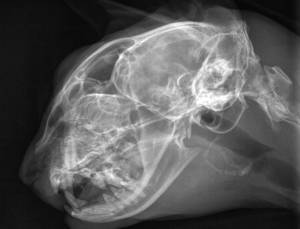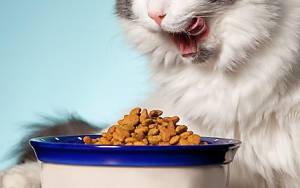If you’re a cat owner, you’ve probably noticed that your furry feline friend has her own unique habits when it comes to using the litter box. However, if you’ve noticed that your cat has begun to urinate more frequently, this could be a cause for concern. It’s essential to understand why your cat may be experiencing this change in behavior, as it could be an indication of an underlying health issue.
We’ll explore the various reasons why your cat may be urinating more often and what steps you can take to help her feel better.
Factors Affecting Urination in Cats
Factors affecting urination in cats include hydration levels, age, body size, and health status. Knowing what is normal for a cat’s urine output is important in determining if there is a problem. Most cats urinate twice a day and produce golf-ball to tennis-ball sized clumps. Kittens may urinate more frequently, and senior cats should not produce more urine than adult cats. Cats fed canned food may urinate more frequently than those fed dry food. Keeping track of a cat’s urine output by weighing the clumps daily can provide a baseline for comparison. Changes in urine output may signal underlying medical conditions and should be addressed by a veterinarian.
Infectious Diseases That Can Lead To Frequent Urination In Cats
Infectious diseases can cause frequent urination in cats. One common infection is the urinary tract infection (UTI), which is caused by bacteria in the urinary tract. Cats with UTI may struggle to urinate and may have blood in their urine. Another infection that can lead to frequent urination is a kidney infection, which is usually caused by bacteria travelling up from the bladder. In addition to increased urination, cats with kidney infections may have fever, vomiting, and a decreased appetite. Early diagnosis and treatment is important to prevent further complications. If you notice any unusual changes in your cat’s urination habits, consult with a veterinarian.
Urinary Tract Infection (UTI)
Urinary tract infections (UTIs) are not very common in cats, but they can happen. If your furry friend suddenly starts using the litterbox more frequently, passing only small amounts of urine, and crying out or whining when urinating, it’s possible they have developed a UTI. The infection often occurs when bacteria enter the bladder through the urethra and start to reproduce. To diagnose a UTI, your veterinarian will perform a urinalysis and may also send a sample for a culture and sensitivity test. Treatment usually involves antibiotics and keeping your cat comfortable while they recover.
Kidney Infection
Kidney infections, also known as pyelonephritis, can cause frequent urination in cats. These infections occur when bacteria enters the urinary tract and travels up to the kidneys. Cats with kidney infections may also show signs of pain while urinating, decreased appetite, and lethargy. While any cat can develop a kidney infection, they are more common in females and older cats. Treatment usually involves a course of antibiotics prescribed by a veterinarian, and it is important to ensure that your cat drinks plenty of water during the treatment period to flush out the toxins. If left untreated, kidney infections can cause long-term damage to the kidneys.
Noninfectious Diseases That Can Lead To Frequent Urination In Cats
Noninfectious Diseases that can cause frequent urination in cats include Feline Lower Urinary Tract Disease (FLUTD) and kidney disease. FLUTD is a broad term used to describe any condition that affects a cat’s bladder and urethra. FLUTD can cause cats to urinate frequently and in small amounts, often with straining or vocalization. Kidney disease can cause cats to drink more water and, in turn, urinate more often. Chronic kidney disease is a common ailment in older cats and can lead to a range of symptoms, from decreased appetite to vomiting. Regular check-ups with a veterinarian can help easily identify and manage these conditions.
Feline Lower Urinary Tract Disease (FLUTD)
Feline Lower Urinary Tract Disease (FLUTD) is a common condition that affects the bladder and urethra of cats. It often causes cats to struggle and feel pain while urinating, and they may even urinate outside of their litter box. Common signs of this disease include straining to urinate, urinating small amounts, frequent and prolonged attempts to urinate, crying out while urinating, excessive licking of the genital area, and blood in the urine. Though FLUTD can occur at any age, it is usually seen in overweight cats with little exercise, eating dry diets, and with indoor litter boxes. Emotional and environmental stress can also increase the risk of developing FLUTD.
Kidney Disease
Kidney disease is a common problem in cats, especially as they grow older. Chronic kidney disease can result from a variety of causes including long-term illness, genetic factors or birth defects. Unfortunately, there is no cure for chronic kidney disease and treatment is aimed at slowing the disease’s progression. Early diagnosis is key, and as such, it’s important for pet owners to pay close attention to their cat’s urinary habits. Elevated levels of protein in the urine, high blood pressure, and increased urine output may all be indicators of chronic kidney disease. A veterinarian can perform tests to determine the severity of the disease and discuss possible treatment options.
Conclusion
In conclusion, if a cat is urinating more often than usual, it could be a sign of a medical issue or stress-related behavior. It is important to monitor a cat’s urination habits and seek veterinary care if necessary. Infectious diseases such as UTIs can cause frequent urination, and treatment is available. Noninfectious diseases like diabetes can also cause an increase in urination. Obstructions in the urinary tract are another possible cause for a cat urinating more frequently. Pet owners should observe their cat’s behavior and seek medical attention if they notice any changes in urinary habits. Early intervention can prevent more serious health issues from developing.






